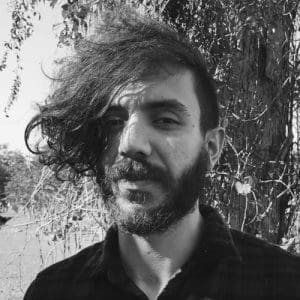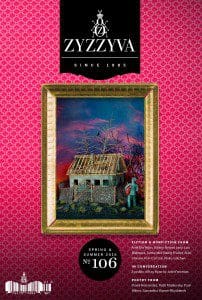“My fear is the common one, that her poetry should be lost,’’ Rodney Jones writes in the introduction to Lost Addresses: New and Selected Poems (100 pages; Salmon Poetry), a posthumously released collection by his friend and fellow Southerner, Diann Blakely. “There are ample reasons for a poet to be neglected, temporarily submerged in a trend, or permanently effaced, for poetry is a cold media and the music that the claim of poetry rests on may not always be acknowledged,’’ he adds. “This book is proof against forgetting.” Indeed. Blakely, who died in 2014, had a light that burned brightly, […]
Tag: Poetry
Testaments to Our Will to Live: ‘Objects From a Borrowed Confession’ by Julie Carr
by Zack Ravas
Somewhere along the way, confessional poetry developed a bad rap. Perhaps it was the result of ubiquity: by 2003, every other turn of the radio dial delivered a soul-baring lyric to one’s ears (“On the way home this car hears my confessions,” went a lyric from a band literally called Dashboard Confessional), and college freshman creative writing classes were inundated with impressionable students expressing their angst through pen and paper. (You may have sat next to one, you may have been one yourself.) These days, mediums such as Facebook, Tumblr, and, well, Medium allow us to broadcast our inner lives […]
Tangles, Erasures, and Connections: ‘Of Form & Gather’ by Felicia Zamora
by Jasmine Lee Ehrhardt
In the introduction to Felicia Zamora’s collection of new and selected poems, Of Form & Gather (62 pages; University of Notre Dame Press), Edwin Torres writes that “A poem’s burden is to live inside its creation, where the organized singularity of its gathering is what brings the reader to the reader’s own voice.” This is an accurate description of how Zamora’s poems work, and what they do to the reader. The book is divided into four sections, titled “circles & circulations,” “that that that; this this this,” “in in; gather gather,” and “To be out of- dually other.” Each section […]
History and Poetry as Unending Things: ‘Whereas’ by Layli Long Soldier
by Jasmine Lee Ehrhardt
Whereas (120 pages; Graywolf) is Layli Long Soldier’s first book of poetry, and what an exquisite book it is. Gathered in one volume, Long Soldier’s poems clearly expose the ways language—either English or Lakota/Lakȟótiyapi—is used to create and destroy opposing politics. She does not shy away from political speech in Whereas, and indeed, she can’t—not as long as Native people continue to suffer under continued settler colonialism, or as the various languages and traditions of the thousands of indigenous ethnic groups are continually stomped out yet revitalized in specific Native spaces. Divided into two parts, the book begins with “These […]
Poems of a Man ‘Robbed of His Country’: ‘In Praise of Defeat’ by Abdellatif Laâbi
by Jasmine Lee Ehrhardt
Abdellatif Laâbi is perhaps Morocco’s most well-known poet-activist-writer, and a well-respected Francophone poet as well His personal history—founder of leftist Moroccan/Maghrebi magazine Souffles (Breaths) in 1966, imprisoned for “crimes of opinion” against King Hassan II from 1972 to 1980, and exiled to France since 1985—is staggering on its own, and his writing reflects each stage of his life in haunting and affective ways. This is perhaps what makes In Praise of Defeat (824 pages; Archipelago; translated by Donald Nicholson-Smith) so incredible. The book is a veritable brick—it’s almost intimidating in its scale, refusing to let the reader forget Laabi’s illustrious […]
‘Poem for Noguchi’ by Matthew Zapruder, ZYZZYVA No. 108, Winter Issue
by me
 Matthew Zapruder is editor-at-large for Wave Books, the poetry editor for The New York Times Magazine, and an associate professor in the MFA program at Saint Mary’s College. Next August, his book Why Poetry? will be published by Ecco. Two of his poems—”Poem for Noguchi” and “Stari Trg”—appear in the new issue of ZYZZYVA, which you can get here.
Matthew Zapruder is editor-at-large for Wave Books, the poetry editor for The New York Times Magazine, and an associate professor in the MFA program at Saint Mary’s College. Next August, his book Why Poetry? will be published by Ecco. Two of his poems—”Poem for Noguchi” and “Stari Trg”—appear in the new issue of ZYZZYVA, which you can get here.
The following is “Poem for Noguchi” in its entirety. You can hear Zapruder read from his work, along with ZYZZYVA contributors Kathleen Alcott, Scott O’Connor, and Ella Martinsen Gorham, at the Winter Issue Celebration at Diesel in Oakland on Thursday, January 26.
[…]
Resisting Easy Definition: ‘My Private Property’ by Mary Ruefle
by Meryl Natchez
…there is the poem as a unit-like thing, and then there is the poem that pervades existence, which is much more like the wind, and that is the poem everyone senses from time to time, whether they can read or not, whether they ‘care’ about the unit-like thing or not.—Mary Ruefle, from a 2013 interview with Andrew David King in Kenyon Review It’s hard to define a poem these days. But whether you call the short pieces in Mary Ruefle’s new book, My Private Property (128 pages; Wave Books), poetry or prose poems or essays or flash fiction or mediations or whatever, […]
‘Portrait of the Alcoholic with Relapse Fantasy’ by Kaveh Akbar, ZYZZYVA No. 107, Fall Issue
by me
 Kaveh Akbar founded and edits Divedapper. His chapbook, Portrait of the Alcoholic, will be published in January by Sibling Rivalry Press, and his first full-length collection, Calling a Wolf a Wolf, is forthcoming from Alice James Books next fall. He is the recipient of a 2016 Ruth Lilly and Dorothy Sargent Rosenberg Fellowship from the Poetry Foundation and the Lucille Medwick Memorial Award from the Poetry Society of America.
Kaveh Akbar founded and edits Divedapper. His chapbook, Portrait of the Alcoholic, will be published in January by Sibling Rivalry Press, and his first full-length collection, Calling a Wolf a Wolf, is forthcoming from Alice James Books next fall. He is the recipient of a 2016 Ruth Lilly and Dorothy Sargent Rosenberg Fellowship from the Poetry Foundation and the Lucille Medwick Memorial Award from the Poetry Society of America.
Three of Akbar’s poems appear in the Winter issue, including this one, “Portrait of the Alcoholic with Relapse Fantasy.” We provide the poem in full, but you can read Akbar’s other poems—”Against Idleness” and “You Came to Feel the Fur But Didn’t Expect the Snout” in Issue No. 107, which you can buy here.
[…]
‘We Can Work Harder to Mourn’: Q&A with ‘Grief Is the Thing …’ Author Max Porter
by Ismail Muhammad
Max Porter’s experimental novel Grief Is the Thing with Feathers (128 pages; Graywolf) follows a father and his two sons as they come to grips with their wife and mother’s sudden death. They do so with the help of an unusual houseguest: Crow, an anthropomorphic projection of the father’s obsession with Ted Hughes’ 1970 poetry collection Crow. Part mythic trickster, part grief counselor, Crow leads the family through an idiosyncratic and irreverent mourning. His air of mischievousness colors the entire novel, lending it a kaleidoscopic tone that renders the mourning process unrecognizable. For Porter, who works as an editor at […]
‘Hotel Bar’ by Ruth Madievsky, ZYZZYVA No. 106, Spring/Summer
by editor
 Ruth Madievsky is the author of the collection Emergency Brake (Tavern Books). She is also a doctoral student at the University of Southern California’s School of Pharmacy, and a research assistant in an HIV clinic in Los Angeles.
Ruth Madievsky is the author of the collection Emergency Brake (Tavern Books). She is also a doctoral student at the University of Southern California’s School of Pharmacy, and a research assistant in an HIV clinic in Los Angeles.
Two of her latest poems appear in Issue No. 106: “Wind” and “Hotel Bar.” (Madievsky has been published in ZYZZYVA before. Her poem “Poem for Spring” appeared in No. 103.) Her work, as described by Maggie Millner in an interview with Madievsky, forces “a dialogue between her romantic and clinical inclinations and suggesting the body’s dangerous propensity for betrayal.” “Hotel Bar” could be seen as an example of that. Here it is in its entirety. You can read that poem and “Wind,” too, in Issue No. 106, which you can order here.
[…]
A Profile of Kay Ryan by John Freeman: ZYZZYVA No. 106, Spring/Summer
by editor
 John Freeman is the author of How to Read a Novelist (FSG), the editor of the literary journal Freeman’s, and a contributing editor to ZYZZYVA. He is also a poet whose work has been published in The New Yorker and ZYZZYVA, and is currently working on a book about American poetry.
John Freeman is the author of How to Read a Novelist (FSG), the editor of the literary journal Freeman’s, and a contributing editor to ZYZZYVA. He is also a poet whose work has been published in The New Yorker and ZYZZYVA, and is currently working on a book about American poetry.
His feature on former U.S. poet laureate and longtime Bay Area resident Kay Ryan—set at a restaurant in the Presidio on a warm San Francisco day—launches a new component of ZYZZYVA: author profiles and conversations. (In our next issue, we’ll be publishing a conversation on memoir between Andrew Foster Altschul and Geoffrey and Tobias Wolff.) The following is an excerpt from Freeman’s profile. You can read it in its entirety in Issue No. 106, which you can order here.
[…]
Healing the Phantom Pains Through Poetry: Q&A with Noelle Kocot
by Maggie Millner
I turn to the poems of Noelle Kocot for the same reason I entered corn mazes as a kid: both are pleasurably unpredictable, and both transform everyday places into thrilling twilight zones. Though Kocot’s writing has covered a great deal of formal and conceptual terrain over the course of her seven books, her work has remained whip-smart and darkly playful, consistently carrying off great feats of imagination while orbiting an urgent emotional truth. These hallmarks are present in the restless quatrains of her Levis Poetry Prize-winning first collection, in the unflinching elegies for her late husband in Sunny Wednesday, and, […]
